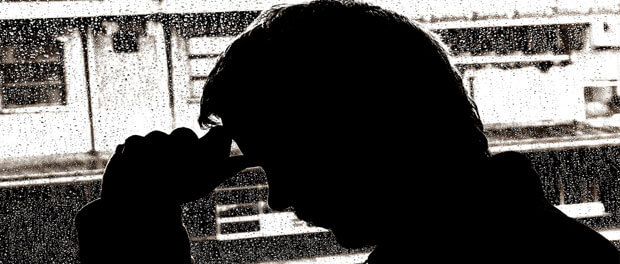
My husband has a habit that I find both irritating and wise all at once. When I come home after a really bad day at work, the first thing he asks me is, “What are you thankful for today?” While he knows that he’ll be greeted with my pithy retort of, “I’m thankful it’s over,” he also knows that in that one quick exchange he has refocused me. That question forces me away from my bleak and self-pitying outlook on the day and reminds me that I ought to be thankful that I had the day to begin with.
Gratitude is quite possibly the greatest weapon God gives us against despair. When we take the time to be grateful, it diverts our gaze toward the light rather than the darkness. This theme of gratitude in the bleakest moments is all over the Bible. As they began their ministry, the apostles were persecuted, flogged, and threatened. Their response to this, though, was to rejoice that they were considered worthy to suffer dishonor for the sake of God. They saw the light in the midst of darkness, and it gave them what they needed to keep on with their ministry. In the Gospel of Luke, Jesus is described as “anxious” to eat the Passover meal with the apostles, and he gives thanks during that meal. He knew it was his last, he knew one of his apostles would betray him, and yet he found a little bit of light in that dark day.
St. Ignatius clearly recognized the power of gratitude. He suggested gratitude as a central part of the Examen, ensuring that retreatants, the Jesuits, and all whom they guide and teach come into the practice of seeing the good that God grants them each day of their lives. It’s perfect training for those periods of desolation—a light toward consolation.
I challenge you, the next time life seems to push you down at every turn or you’re just having a lousy day, to take some time to consider the question that irritates me: What are you thankful for today? It might seem like an insurmountable challenge in some circumstances. If that’s the case, Padre Pio offers you this ounce of hope, “The most beautiful act of faith is the one made in darkness, in sacrifice, and with extreme effort.”

I am so sad today because my husband died on November 1 after a long, terrible illness. I am grateful that he is not suffering, but I so wish we had more time together. I am afraid of living alone, and while I am so thankful for my family, friends, and faith, I miss him dreadfully and am struggling with my broken heart. I read that a broken heart can be united with the Sacred Heart of Jesus. I do not know how people can face death without our faith. Thank you for this blog post, and I will list my blessings and gain courage for the day.
Dear Kathleen, My husband of 47 years died 19 months ago within six weeks of a diagnosis of cancer which had spread without us knowing it. I too felt alone and fearful when the children and their families left a few days after the funeral. God gave me the grace and love to live one day at a time. Every day became a new day and I could live it. I think I shall always miss my husband, but I shall be able to live happily as long as God wants me to. I shall pray that you will be able to do the same. It is not easy, but with God’s help it is possible.
This article was an answer to prayer for me. My husband has 4th stage cancer, and our youngest son has slipped into alcoholism after 10 years of being sober through AA . He was arrested for public drunkenness and after leaving jail he attempted suicide.
I am so grateful for these words of Padre Pio, and that an attitude of gratitude is the best weapon against despair!
Prayers for you.
Dear Kathy, I can almost feel your despair, but I am sure Padre Pio’s words will see you through. I shall pray for you too. God bless you. With love and concern.
Thank you for this article. I have been experiencing great anxiety and sadness because of the illness of a close family member. It helps me to be grateful for the happy times we have shared and to pray for restored health and mending of a fractured bond of love.
Just want to say thank you for this article. It certainly came at the right time for me. God bless!
podría ves esta pagina en español ?
I just want to thank you for this article. I hope it will give me the lift I need on days when my circumstances are full of “insurmountable challenges.”
Gratitude is not only the antidote to depression, but also the keystone to communicating with the Lord, as St. Ignatius teaches us in the Examen. Thinking about the enormous blessings flowing from the life God has given us, and his legacy of the Holy Spirit present in our world as aid and succor, we are empowered, and in that empowerment, we can do God’s work that in human eyes and in the human mind, can seem insurmountable.
This is my favorite spiritual tool which I first internalized in A.A. many years ago. My sponsor’s first instruction to me was to make a list of 10 things to be grateful for. I couldn’t think of any, but she said, “start by saying ‘I am alive’ “. Over the years I have found countless reasons to thank God for his many gifts to me.
Even better, I have taught my daughter to be grateful in the midst of a difficult life.